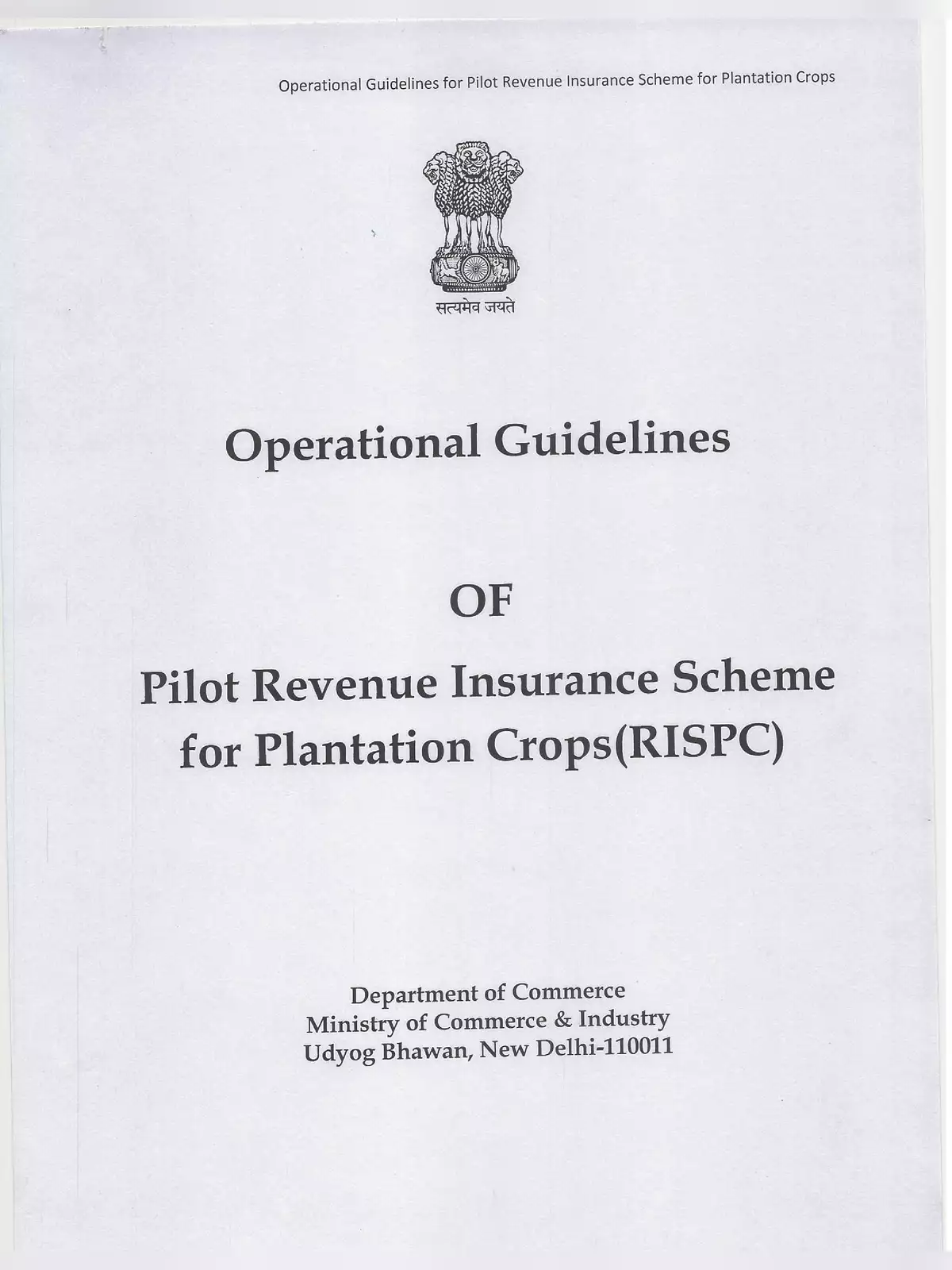Revenue Insurance Scheme for Plantation Crops (RISPC) Guidelines - Summary
The Revenue Insurance Scheme for Plantation Crops (RISPC) is an important initiative by the Department of Commerce aimed at protecting tea, coffee, rubber, cardamom, and tobacco growers. This program is designed to shield them from unpredictable weather and price fluctuations, which can lead to crop yield loss due to adverse conditions, pest attacks, and other issues. It also provides support for potential income loss due to drops in international and domestic market prices through effective crop insurance.
Key Features of the Revenue Insurance Scheme
Coverage of the Scheme
- Small growers of Rubber, Tea, Coffee (both Robusta and Arabica), Tobacco, and Cardamom (both small and large) with landholding of 10 hectares or less are eligible for the RISPC insurance premium subsidy. Only mature standing crops qualify for the program.
- Growers registered with their respective Commodity Boards (CBs) in pilot districts, as well as member growers benefiting from other government schemes through the CBS, or those receiving loans from public financial institutions, are required to participate in the Scheme. Other small farmers have the option to opt-out.
- This initiative will be rolled out initially as a trial in eight districts across seven states. Approximately 1.8 lakh small growers are expected to be covered, with total area coverage of around 2.10 lakh hectares.
- In the selected districts, the scheme will use an ‘Area Approach’. In collaboration with the relevant State Government, the Commodity Board will identify an Insurance Unit (IU), which may be a village, village panchayat, or another similar local unit.
Duration for RISPC
The trial project started with the 2016-17 crop cycle and may continue for a duration of up to two years.
To get detailed information about the Revenue Insurance Scheme for Plantation Crops (RISPC) and its guidelines, please download the PDF link below and explore the benefits and protections available. 📄
